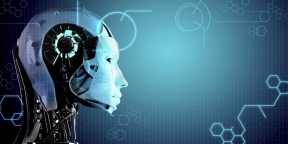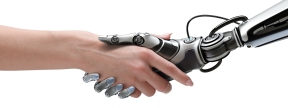
By: Cristobal Mora
Today, Artificial intelligence (AI) is a controversial topic and often regarded with great impact to the future of humankind. There are assumptions that that AI will be great for humanity by improving production tasks, health care services and the justice system. However, AI has serious negative impacts toward humankind. Some of the most respected leaders of academia and industry have vocalized the dangers of AI being that of taking away jobs, its ethical implications and regulation standards. Nevertheless, the technology continues to be developed and incorporated into society but at what point does AI stop benefiting humankind?
Artificial Intelligence is great, we running into AI in our day-to-day. We encounter it when on a google search, clicking on a recommended video on YouTube and most impressively on Facebook when it detects your friend’s face in a photo you just uploaded. These technologies when developed are made to improve society by outperforming humans. I believe we should ask this: If AI is developed to do almost all of what humans do, what will humans do? We should care about the potential threats of AI since we now live in an era dominated by it. I believe that artificial intelligence should only be developed to benefit humanity, therefore those developing the technology should be aware of the potential pitfalls and threats it has on humanity. The main concerns comes from the possibility of AI taking over aspects of society that are critical to controlling the direction humankind’s progress. Essentially, AI is a collection of technologies that are designed to outperform tasks performed by humans. According to researchers at the WEF, current trends of automation are leading to an employment impact of more than 5.1 million jobs lost to labor market worldwide over 2015 to 2020.
These people who lost their jobs to AI are made up of the middle class. The job loss creates devastating income inequality. The labor market is turn to automation for complex tasks and the working class struggle to finding work for living wages. In their research published by the Oxford Martin Program on Technology and Employment, the authors found that about 47 percent of total us employment even outside of labor is estimated to be at risk. The increasing amounts of responsibility being delegated to automation is seen in systems for air traffic control, bartending, pharmacy and more recent autonomous driverless cars. Delegating responsibility to machines in efforts in improving time, cost and accuracy comes at a cost. How does society adapt to more automation and fewer people needed to work? According to researchers, social interactions are link together with physiology work and correlates with positive effects.

There are also ethical risks with this delegation of responsibility aside from dealing with economics. For instance, ethics can become quite complicated to compute into an algorithm. The use in AI in professions such as medicine or law, where individuals are required to deal with a degree of emotional intelligence, the use of AI can become a concern. Mistakes happen even with AI but ethical issues arise from potential situations like mistakes in law. According to aspects of Law argumentation theory a legal reasoning is a complex set of human beings. There are consequences to irrational decision making in AI & law. The development of AI technology should include research not only on improving AI, but more importantly on maximizing the societal benefit of AI. If there is industries moving towards automation like autonomous machines then I think it’s important to consider the best way to regulate AI so that the technology continues to benefit society and avoid its pitfalls like income inequality. Of course it’s difficult to make predictions about the future, but in us it’s natural to take uncertainties seriously, when there is a lot at stake. We won’t need to empty our desk and put away our tools just yet. Jobs that require a certain level of social intelligence and creativity like education, aspects of healthcare, and the media are likely to remain in demand from humans.
Automation is great when it truly benefits humankind. For instance machines that relieve workers from dangerous and labor heavy tasks, there are robots to investigate suspicious packages minimizing risk on humans. At the moment we don’t know enough about the issues to estimate the risks with a certain degree of confidence. With all this said, AI research is progressing steadily and its impact on society is likely to increase. I propose we support research efforts to ensure that the increasingly capable AI systems remain beneficial to humans. For instance, 3 researchers who published to the Association for the Advancement of Artificial Intelligence discuss how to maximize benefits of AI while avoiding potential pitfalls. We should work toward building AI systems that result in greater prosperity within society. These systems should discuss the short-term priorities like optimizing the economic and social benefits and long-term priorities such as conservation of human work.












